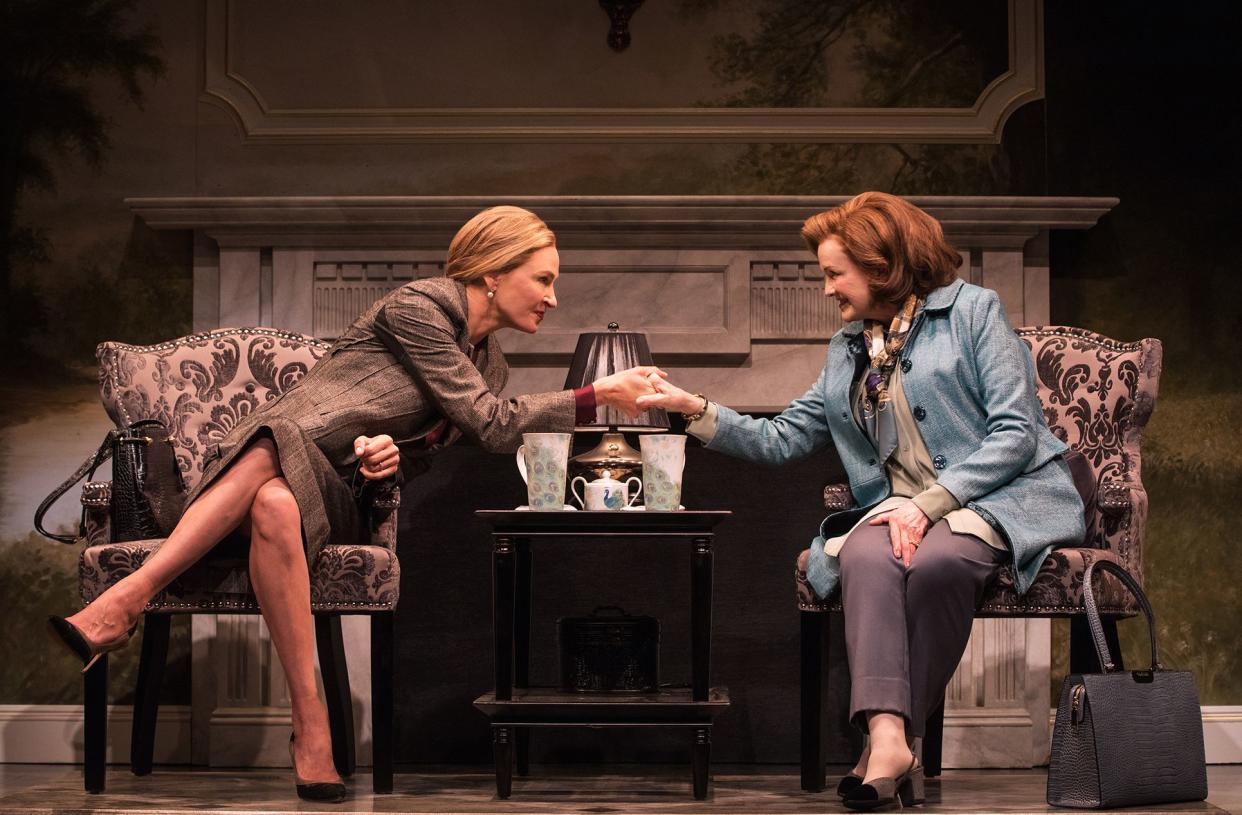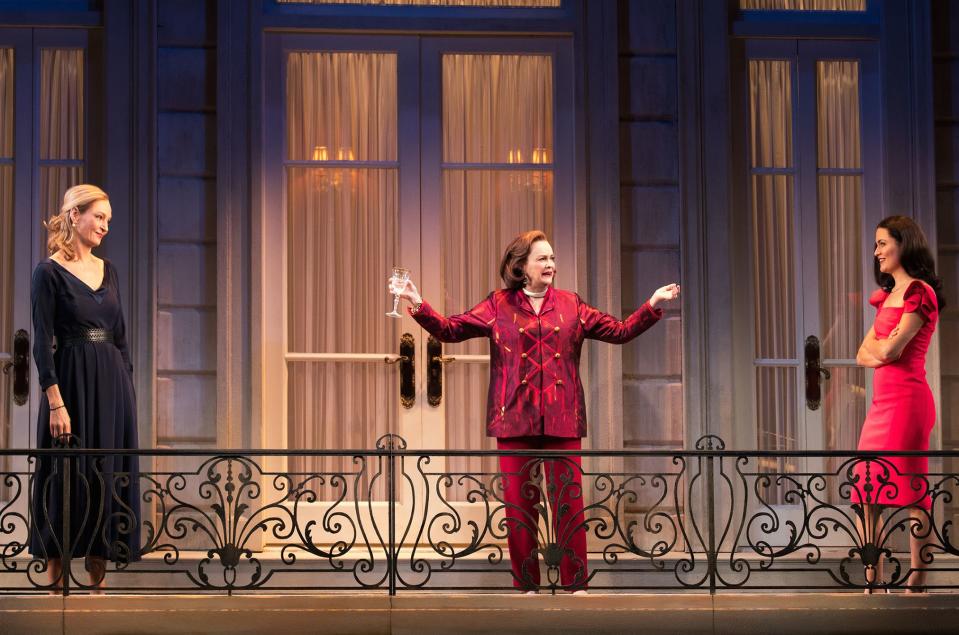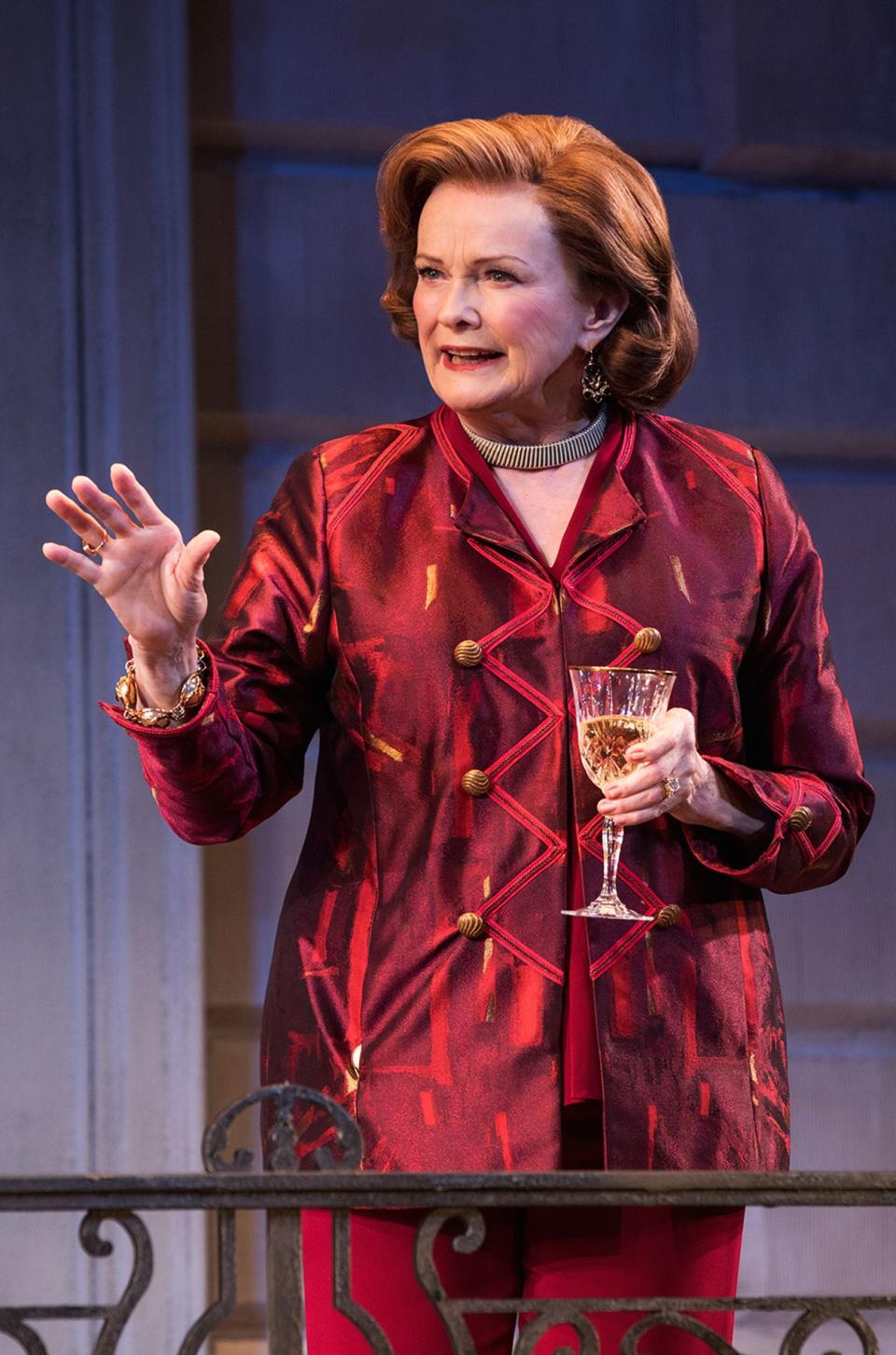Inside the Play Bringing D.C. to Broadwway

There’s a Washington, D.C. tax lawyer who’s up for a spot on the Fourth Circuit Court of Appeals if only his wife - a Hollywood-gorgeous-but-Washington-devious social type - can convince her lover to put in a call to his friend the President. No, it’s not the latest political scandal to dominate your Twitter feed, it’s the problem at the center of The Parisian Woman, a new Broadway show written by Beau Willimon (the playwright and screenwriter who created House of Cards).
One of the highlights of the production is Blair Brown (most recently of Orange is the New Black), who plays the newly-appointed head of the Federal Reserve Bank and finds herself entangled with the lawyer’s wife (Uma Thurman, in her Broadway debut). What seems political becomes personal, and the swamp is anything but drained. Here Brown, herself a D.C. native, talks about the show’s ripped-from-the-headlines feel, and why it’s an ideal piece of entertainment for our tumultuous times.
There’s a contemporary bent to this show. You’re portraying people who are living in a time that seems to be only a few months behind ours, in Washington at one of the most turbulent times in recent memory. Does the audience reaction to the lines - which reference real government officials and hint at things that have in some cases actually happened - get different reactions based on the current news?
It plays differently than it did even a few weeks ago. I play a conservative and work with that point of view, and there’s never a hostility toward my character or her point of view, although I was expecting that. The house now gets really silent in parts where the characters talk about working around the president; since the tax bill went through that stopped getting laughs. And there is a line that previously never got any response - when I ask my daughter whether anyone’s been inappropriate with her at a party - now gets a real reaction. That part has been curious. I think that will happen over and over again. Certain lines will come forward and others will recede.

You could be forgiven for being sick of talking about politics at this point in time. What made you want to go deep into that world as your job?
The first thing was Beau Willimon. And then [director] Pam Mackinnon. Those are both good names to hear. Uma and I have been reading this show for backers for about 18 months. I was a huge fan of House of Cards; I started with the British one and thought I would never like the American one - but I was wrong. I found it fascinating. I kept thinking, does anybody really need to see more about how awful people are in Washington, but then the election happened and now the show is a cautionary tale. And it’s the polar opposite of House of Cards; the five people in this show are all trying to find what matters in their lives and attempting to use their moral compasses.
Some parts can also be read as political or not. There’s a character named Steve who gets out of hand at a party. That could be Steve Bannon or just an over-served guest.
When we read the show in December when it had been tweaked after the election, and everyone in Washington was talking about trying to get in to see Reince Priebus. And the character who threw up on the sofa in the show wasn’t Steve Bannon, but was Mike Flynn. Those boys had to go. There were things that were in even a few weeks ago that had to go.
Do you ever get approached by audience members to tell you if you’re at all close to what’s really going on with your depiction?
I know some people who’ve felt it’s very on the money about Washington. I suspect Beau gets a lot more of that feedback because he has a lot more people in that world. That’s the advantage of having a playwright like Beau. He knows the world. These characters also aren’t the movers and shakers, they’re the people who are batted around by the movers and shakers.

The characters are familiar but not absolutely recognizable. Did you look to any real-life Washington power brokers for inspiration?
I went to boarding school outside Washington, and a friend from school who saw the show said to me, “I know that house; it’s Dumbarton Oaks.” But the characters aren’t based on particular people, though I could draw on people I knew growing up. My parents were old-fashioned Washington Republicans, and knew people with aspects of [my character,] Jeanette.
She definitely feels like she could fit in with our idea of Georgetown society.
Because we have so many images of who these women are, I tried to make one who isn’t like one you’ve seen before. Washington can be such a clique-y place, and it can be this nexus of art imitating life imitating art. We went a different route than people might have expected.
And it’s not just a political story. You get to play with a bit of a mystery as well. That’s got to be fun.
It’s like a thriller at certain points. Audiences are gasping or whispering out loud. There’s one point in the show when the doorbell rings and three times now someone’s shouted out, “it’s the mother!” It’s great to see the audiences getting so engaged.
You Might Also Like

